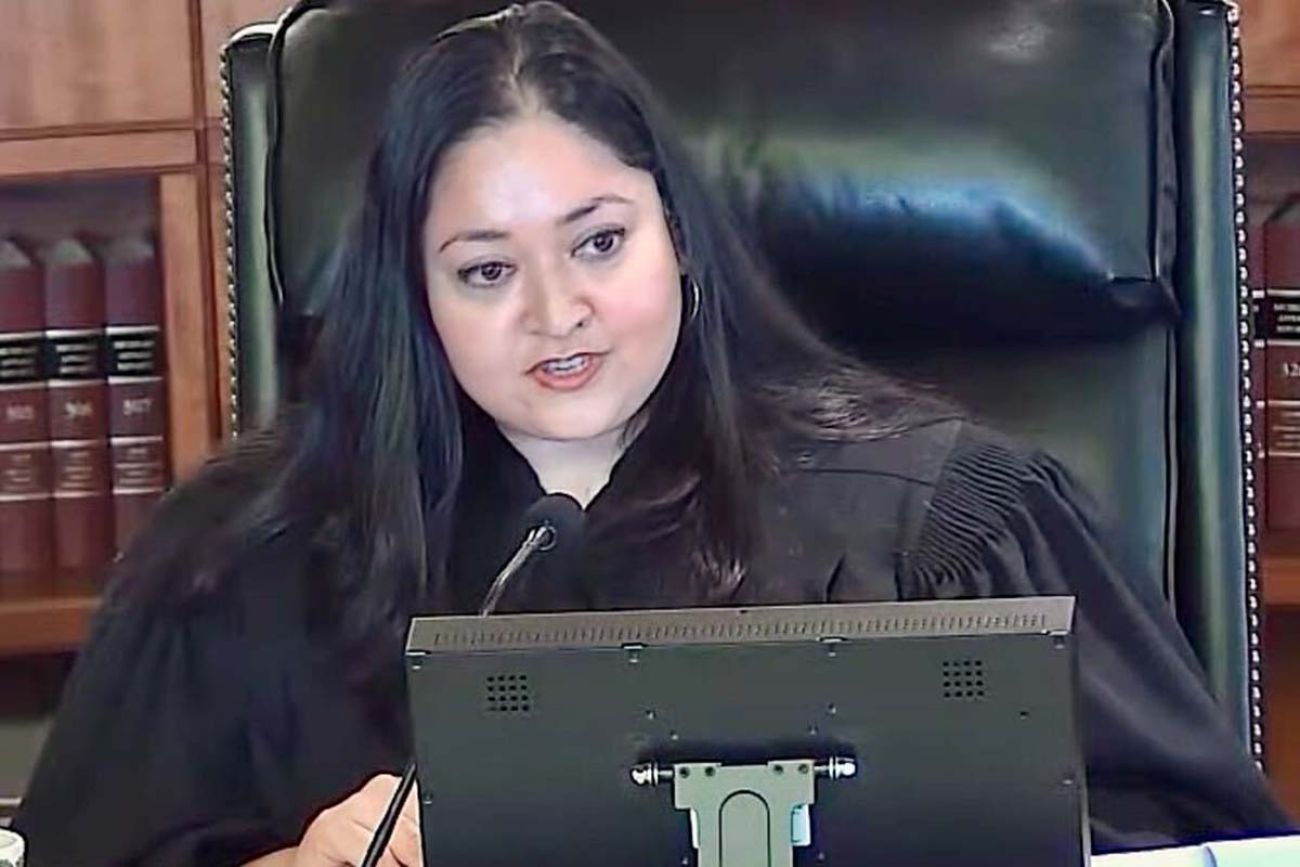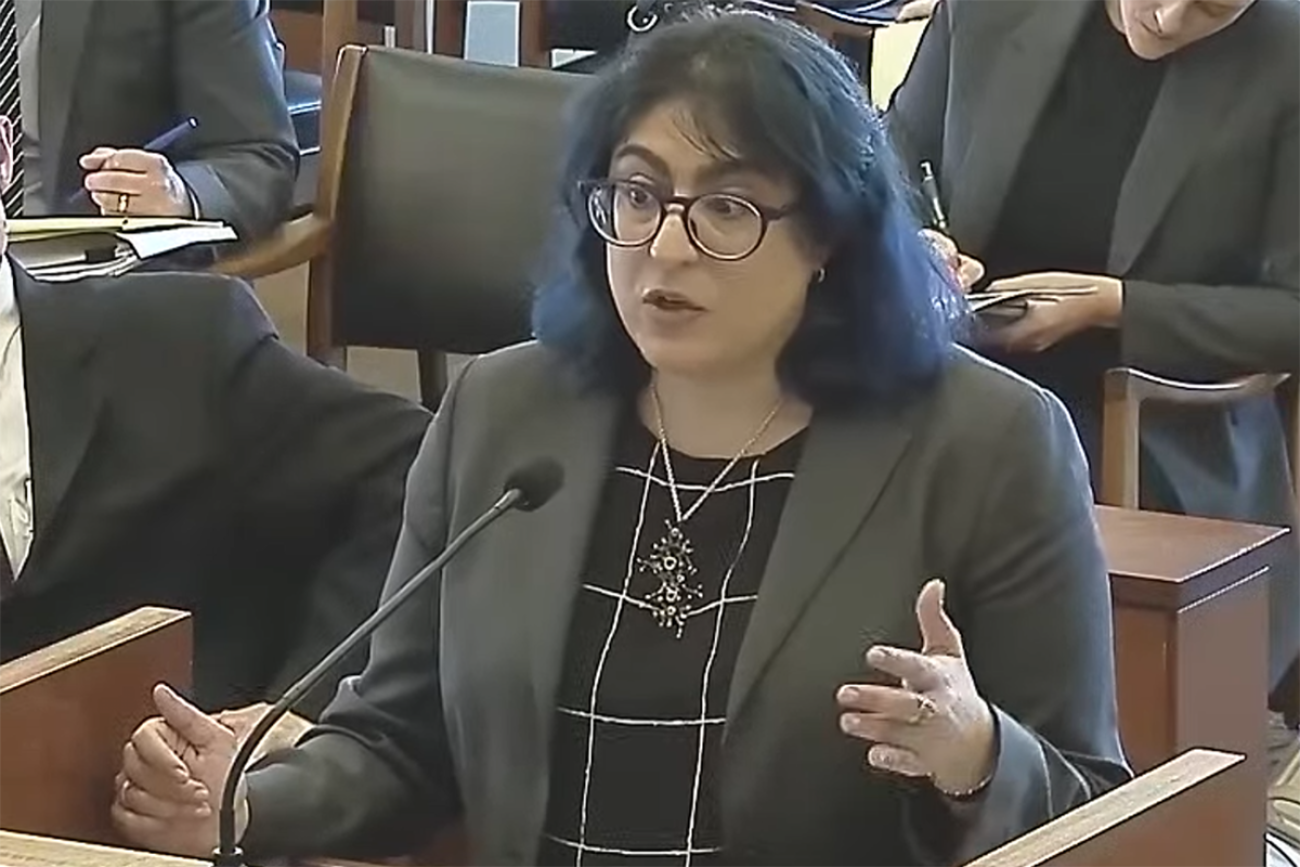Michigan lawsuit aims to lift 24-hour wait period for abortions

- Two health care groups are suing the state over what they see as Michigan’s failure to fully implement Proposal 3 of 2022
- The suit seeks to invalidate laws requiring a 24-hour wait period prior to an abortion, mandating counseling and limiting providers
- In defending laws, Michigan argues they do not “burden, deny or infringe” on abortion rights but instead help inform important decisions
LANSING — When Michigan Democrats finalized a new Reproductive Freedom Act in December, they made political concessions to overcome opposition within their own party — notably, keeping in place a 24-hour waiting period required for women seeking an abortion.
Now, two health care organizations are suing the state, arguing the failure to lift the waiting period and two other remaining restrictions means Michigan isn’t properly implementing a 2022 ballot proposal that wrote broad abortion rights into the Michigan Constitution.
When it comes to abortion, the only interest the state should have is in “the health of the pregnant person, consistent with the standard of care without intruding upon an individual's autonomous decision,” Rabia Muqaddam, an attorney representing both Northland Family Planning Center and Medical Students for Choice, said Tuesday in state court.

Michigan Court of Claims Judge Siwa Patel heard initial arguments in the lawsuit from Northland, a health care organization with abortion clinics in metro Detroit, and Medical Students for Choice, a nonprofit focused on abortion education and family planning.
Related:
- As Michigan becomes abortion destination, foes and advocates expand services
- Michigan Proposal 3: What changes if abortion becomes constitutional right
- ‘Watered-down’ version of bills repealing abortion restrictions head to Whitmer
The groups sued Attorney General Dana Nessel, the Michigan Department of Licensing and Regulatory Affairs, and the Michigan Department of Health and Human Services in February.
The lawsuit seeks to invalidate three state laws the plaintiffs see as running afoul of Proposal 3 of 2022: the 24-hour wait period before a requested abortion can be performed, mandated counseling for women seeking an abortion and a ban on advanced practice clinicians performing an abortion.
Supporters of the statutes contend there is no need to rush life-altering procedures and that women should be provided more information about abortions prior to having one performed, as required under the law.
Repeal advocates, however, say the information provided is often medically inaccurate and judgmental. They contend the 24-hour delay burdens women attempting to access an abortion.
That was the crux of arguments from Muqaddam, an attorney representing both plaintiffs in the case. She said the 24-hour waiting period can increase the cost of an abortion, both for outstate women needing lodging because of the wait and in-state women who spend extra on gas to make two trips.
“The state has acknowledged that these laws do impact or burden to some degree,” Muqaddam said, “and if they burden to some degree, then we think they infringe” on a woman’s right to have an abortion in Michigan.
Information distributed during mandatory counseling is often factually inaccurate which is “fundamentally at odds with” the idea of “informed consent,” she added.
But Assistant Attorney General B. Eric Restuccia, arguing on behalf of the state, said the mandatory counseling isn’t meant to be discriminatory and can help protect patients by ensuring they have access to relevant information.
Similarly, he said the state’s 24-hour waiting period is not a roadblock considering that women can print out and complete the state’s Informed Consent Confirmation Form ahead of meeting with an abortion provider.
“If you’re interested in having children and … if you had more information, you may have made a different decision — that’s the question,” Restuccia said. “The question is: Is this information that’s relevant for exercising your fundamental rights and your freedom? Seems to me that it is.”
Patel, however, questioned the merit of showing women seeking abortions pictures of fetuses — currently required under Michigan law ahead of obtaining an abortion — asking if it could be seen as “passing a sort of value judgment on whether to seek, or not seek, abortion care.”
But that “information is not supposed to be geared toward an end,” Restuccia contended, saying it was “supposed to be value neutral” and illustrate potential risks related to childbirth and abortion.
Restuccia is defending the state law even though his boss, Nessel, has sided with plaintiffs in her role as attorney general. Her office has set up a "conflict wall" to argue both sides of the case, Nessel said in February.
Michigan’s Democratic-led Legislature attempted to repeal the state’s 24-hour waiting period and other restrictions as part of what leaders touted as the Reproductive Health Act. But they were forced to amend the legislation in late 2023 after public opposition from Rep. Karen Whitsett, D-Detroit.
As to the provider ban also targeted by the new lawsuit, Restuccia told the court that was a legislative decision, noting at least 19 states — including California, Montana and Illinois — do already allow advanced practice clinicians to carry out abortions.
Still, Restuccia cautioned that allowing “someone who’s not a medical professional” to provide abortions could open the door to a lower standard of quality when it came to the procedure. Keeping the ban, Restuccia added, “certainly creates the Cadillac standard of ensuring proper medical action.”
But that limit on which providers can administer abortions is “unmatched by any other form of health care,” Muqaddam said, noting advanced practice clinicians regularly prescribe abortion-inducing medications for miscarriages, though that same medicine cannot be prescribed for a standard abortion.
Arguments in the case are scheduled to continue at a later date.
See what new members are saying about why they donated to Bridge Michigan:
- “In order for this information to be accurate and unbiased it must be underwritten by its readers, not by special interests.” - Larry S.
- “Not many other media sources report on the topics Bridge does.” - Susan B.
- “Your journalism is outstanding and rare these days.” - Mark S.
If you want to ensure the future of nonpartisan, nonprofit Michigan journalism, please become a member today. You, too, will be asked why you donated and maybe we'll feature your quote next time!



